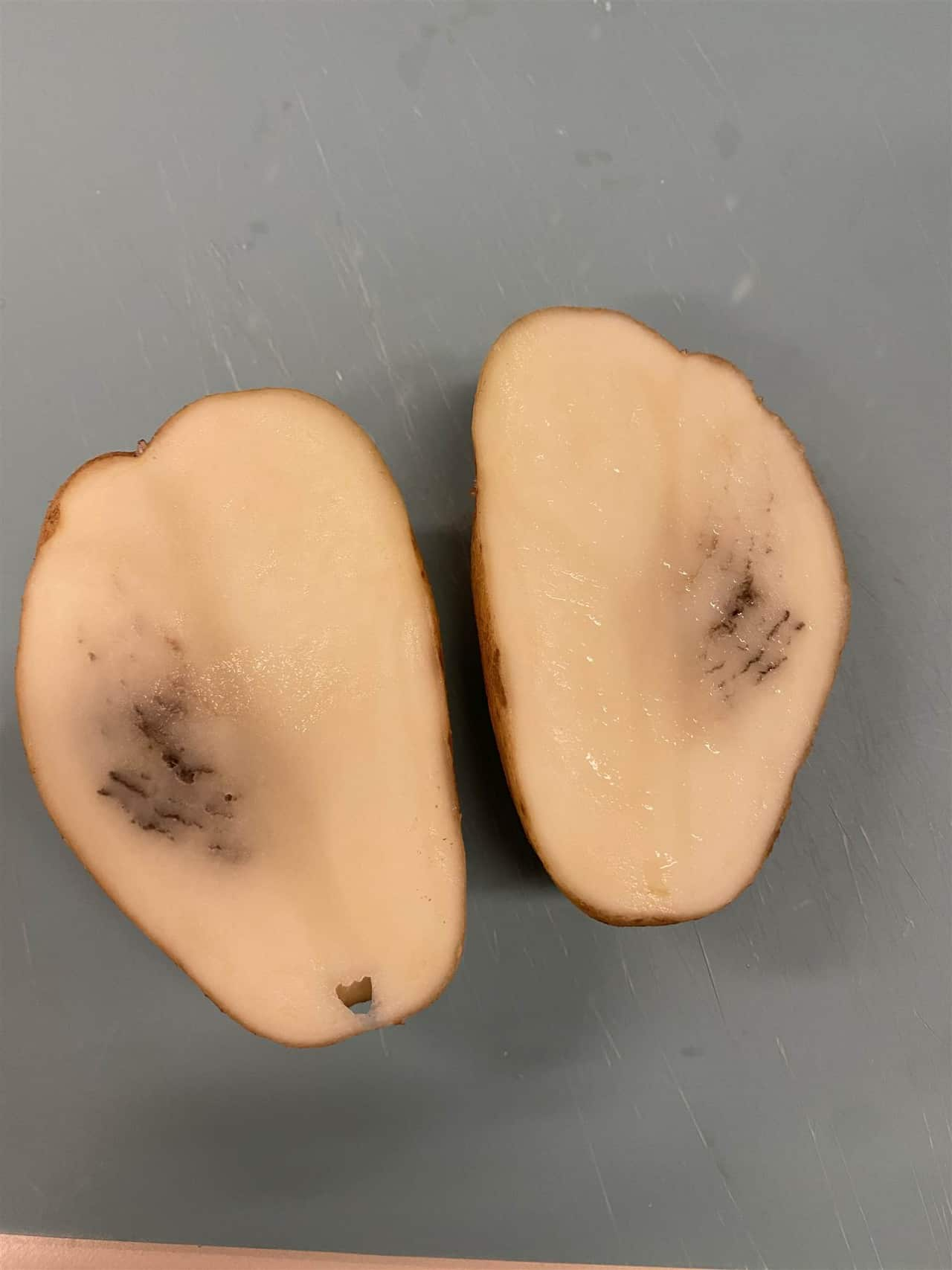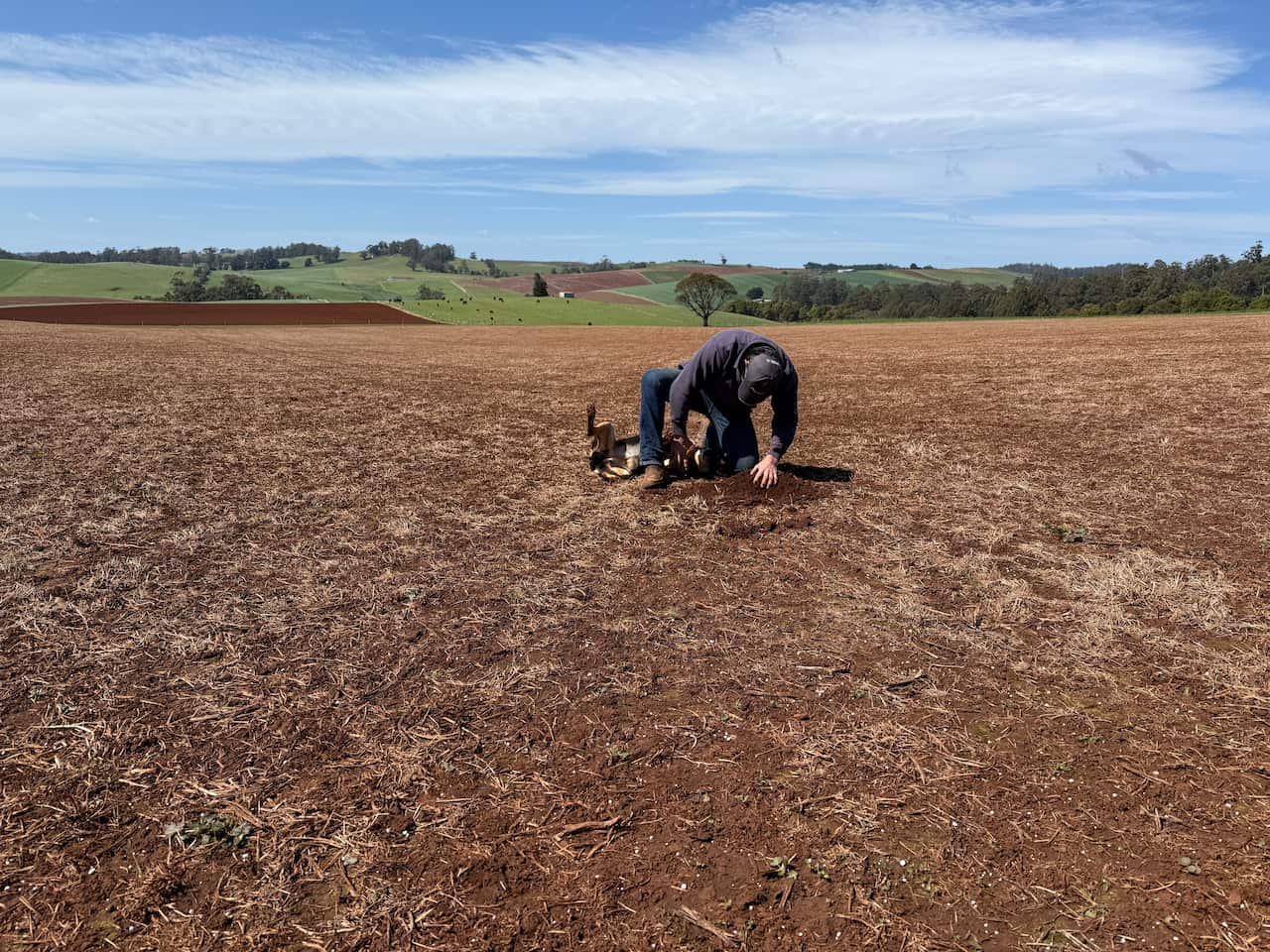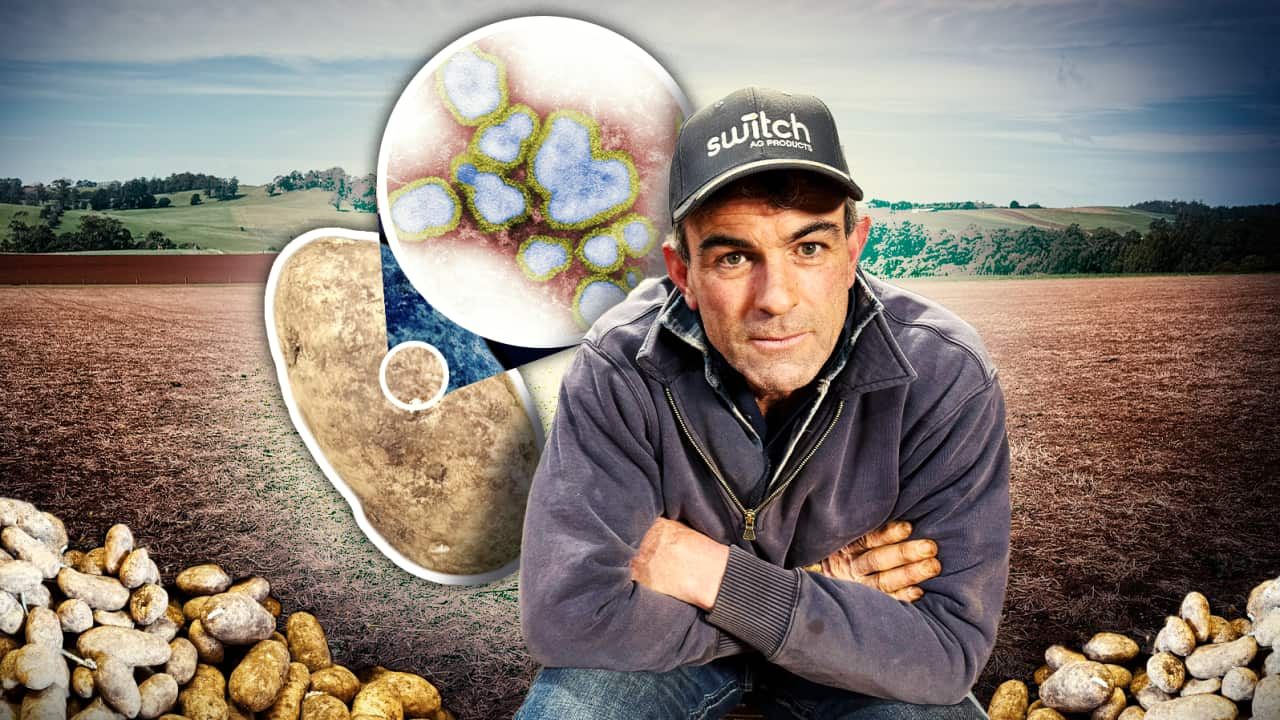Stuart Applebee has been growing potatoes in north-west Tasmania for decades.
Potato mop top virus (PMTV) isn't the first disease he's dealt with but hearing it has made its way into his state was a blow.
"Like any new virus, it's quite concerning when you know you're probably the first state to be detected in the country with it," he told SBS News.
"Once we found out a little bit more out of New Zealand and a couple of other countries that are dealing with it, that probably relaxed my own thoughts a little bit."
Potato mop top virus isn't a threat to human health but it can affect the skin and flesh of potatoes and impact crop yields.

It was first detected on a farm in north-west Tasmania in July, also marking the first time it's been found in Australia.
Testing in Tasmania ahead of planting saw 1,700 tonnes of infected seed potatoes destroyed, with calls for a federal assistance package for affected farmers. Concerns also remain about how it got here.
"The most concerning thing about the mop top incursion into Tasmania is that this isn't just the first time the virus has been detected in Tasmania, but it's also the first time that it's been detected within Australia," TasFarmers CEO Nathan Calman said.
"Its presence here represents a failure of our national biosecurity protocols, but also our state biosecurity protocols."
A spokesperson for the Department of Agriculture, Fisheries and Forestry told SBS the current government has committed an extra $2 billion to resourcing the country's biosecurity system since it came to power.
"Australia has a world-leading national biosecurity system, which is critical to our economy, environment and way of life," they said.
How did it get here?
Efforts so far to trace the source indicate PMTV could have been in Tasmania for two years.
Australia's chief plant protection officer Gabrielle Vivian-Smith was questioned about the incursion by Tasmanian senator Richard Colebeck in estimates this week.
"It's not known exactly how it arrived in Australia, it potentially could have come in on a number of different pathways," she said.

A Biosecurity Tasmania spokesperson said PMTV has been detected across multiple sites, including growing sites, a research site and storage facilities.
The only detection of PMTV on the mainland to date is in seed potatoes in cold storage in Victoria.
That state, as well as NSW and South Australia, have placed restrictions on the movement of unprocessed potatoes and production equipment from the Apple Isle.
The National Management Group — the decision-making body for national exotic plant pest, animal disease and environment eradication programs — last month decided PMTV was not eradicable in Tasmania.
Zarmeen Hassan is the biosecurity manager for the peak representative body for the potato industry, AUSVEG.
She said if it's been in Tasmania for two years, there is a concern it's already spread to the mainland.
"So far we know that it's only in Tasmania, right? We don't actually know whether it has spread to the mainland," she said.
"If it has not spread to the mainland, then obviously the industry and government want to work towards containing it."
Learning from New Zealand
Across the Tasman, they've been dealing with PMTV for seven years, after it was found at a processing plant on the South Island in September 2018.
New Zealand also determined it could not be eradicated but management is going well — so far.
"We're not seeing lost yields, we're not seeing anything, but they do call it the sleeping disease," Potatoes New Zealand CEO Kate Trufitt said.
"So something for us to be aware of is that something could happen in the future."
New Zealand is looking into varieties of potatoes resistant to mop top.
Trufitt said washing down of machinery when moving between farms, crop rotation and improving soil health were crucial in preventing the disease.
The vector: powdery scab
A known vector of PMTV is another disease found in potatoes, powdery scab.
"That spreads the virus, and it allows it to take hold within crops," TasFarmers CEO Nathan Calman told SBS News.
The Tasmanian government is investing $200,000 into a research program looking into powdery scab and PMTV.
"We've looked to our friends across the ditch in New Zealand who've told us that the key to mop top management is addressing powdery scab," Tasmania's primary industries minister, Gavin Pearce, said.
Hassan said powdery scab was prevalent in the majority of the growing regions.
"If that's the case, then [PMTV] may be further than Tasmania. We don't know that, it's a bit of an unknown right now."
"Developing a soil test to detect powdery scab and mop top is crucial, and work is underway.
"At this point, there isn't a soil testing protocol and methodology in place in Australia; it is being worked on.
"But planting season is starting now, so it won't be available for this planting season; it will be available for the next season."
Planting the next crop of potatoes is underway in Tasmania, but ongoing rain means for some, including Applebee, the ground is still too wet.
Despite this and other challenges, he can't imagine doing anything different.
"There is no better feeling than growing a crop of whatever — it can be carrots, potatoes, peas — and knowing full well that it's of the highest quality," he said.
For the latest from SBS News, download our app and subscribe to our newsletter.

